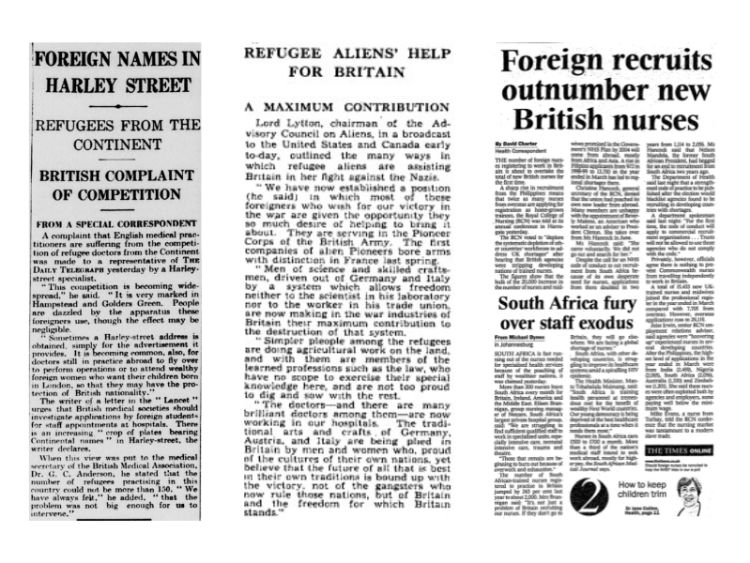Research project
Making it to the Registers: Documenting Migrant Carers’ Experiences of Registration and Fitness to Practice
- Start date: 1 March 2023
- End date: 28 February 2025
- Funder: Arts and Humanities Research Council (AHRC)
- Value: £535, 114
- Partners and collaborators: British Association of Physicians of Indian Origin (BAPIO). And BAPIO Institute for Health Research.
- Primary investigator: Professor Marie-Andrée Jacob
- Co-investigators: Dr Priyasha Saksena
- External co-investigators: Dr Nasreen Ali, University of Bedfordshire
Interrogating the lived dimensions of the regulation of global, migrant healthcare professionals

Background
Who gets to become and remain a professionalised healthcare worker in the UK?
This question has become particularly salient given the endemic shortage of qualified healthcare workers in high-income countries with ageing populations. The current international makeup of the UK healthcare workforce is the result of several factors, one of which is the struggle over the gatekeeping functions of the health professions. More specifically, the regulatory tools of registration and fitness to practise (FtP), which relate to the skills, knowledge, health, and character that professionals must satisfy, play a key function in the construction of the modern, professionalised, diverse healthcare workforce.
Summary
'Making it to the Registers' focuses on how professional regulation impacts the creation and maintenance of the professionalised healthcare workforce in the UK. Specifically, the project will unpack the gate-keeping functions performed by two regulatory tools, registration and fitness to practise, appraising their impact on the experiences of migrant carers, in both historical and contemporary perspectives.
This project will deploy history, legal studies, anthropology, sociology of diversity in health, and user-engagement activities, as well as the experience and expertise of our partner and other organisations.
Phase 1
We will use archival research methods to generate original knowledge about how the tools of registration and Fitness to Practise for overseas-trained healthcare workers historically came to be promoted, enacted, modified, used, and documented by professional regulators and other institutional bodies.
Phase 2
The project will take stock of the themes emerging from the Phase 1 findings to investigate contemporary decision-making rationales within regulatory systems and the current experiences of migrant workers with regulatory systems. This will be done in conjunction with BAPIO via interviews and user-engagement activities.
Phase 3
We will show the project's wider applicability with the support of cultural institutions (University of Leeds Brotherton Special Collections, Leeds Playhouse, YARN, and the Refugee Council). We will produce, share, and preserve, in a variety of accessible formats, original insights to enlarge academic, policy and public understandings of how regulatory tools of the professions get experienced by migrant healthcare workers and the activists that support them. This will be supported with a sharing event bringing together migrant healthcare workers, professional regulators and policymakers and media, a co-curated open-access digital archive, and a political theatre project on the theme of the UK's migrant healthcare workforce.
Research Fellow
Dr Amrita Limbu, School of Law
External Co-investigator
Dr Nasreen Ali, University of Bedfordshire
Partner organisations
Our partner organisations are the British Association of Physicians of Indian Origin (BAPIO) and the BAPIO Institute for Health Research. BAPIO is an organisation with 25 years of experience in lobbying for and supporting migrant doctors and nurses from Asia and Europe to work professionally in the UK.

